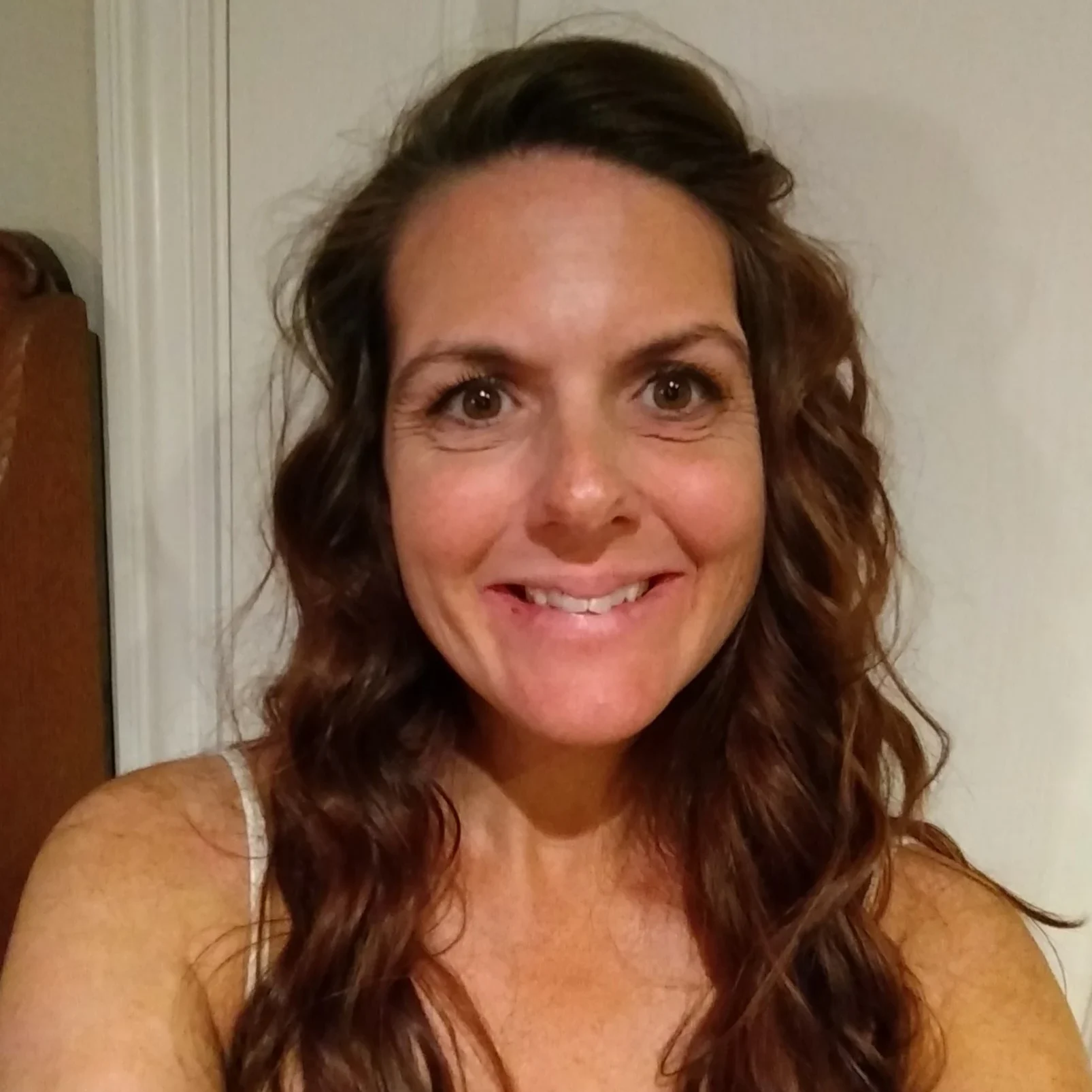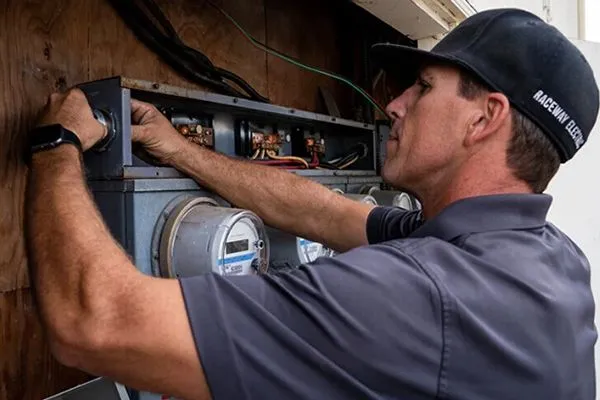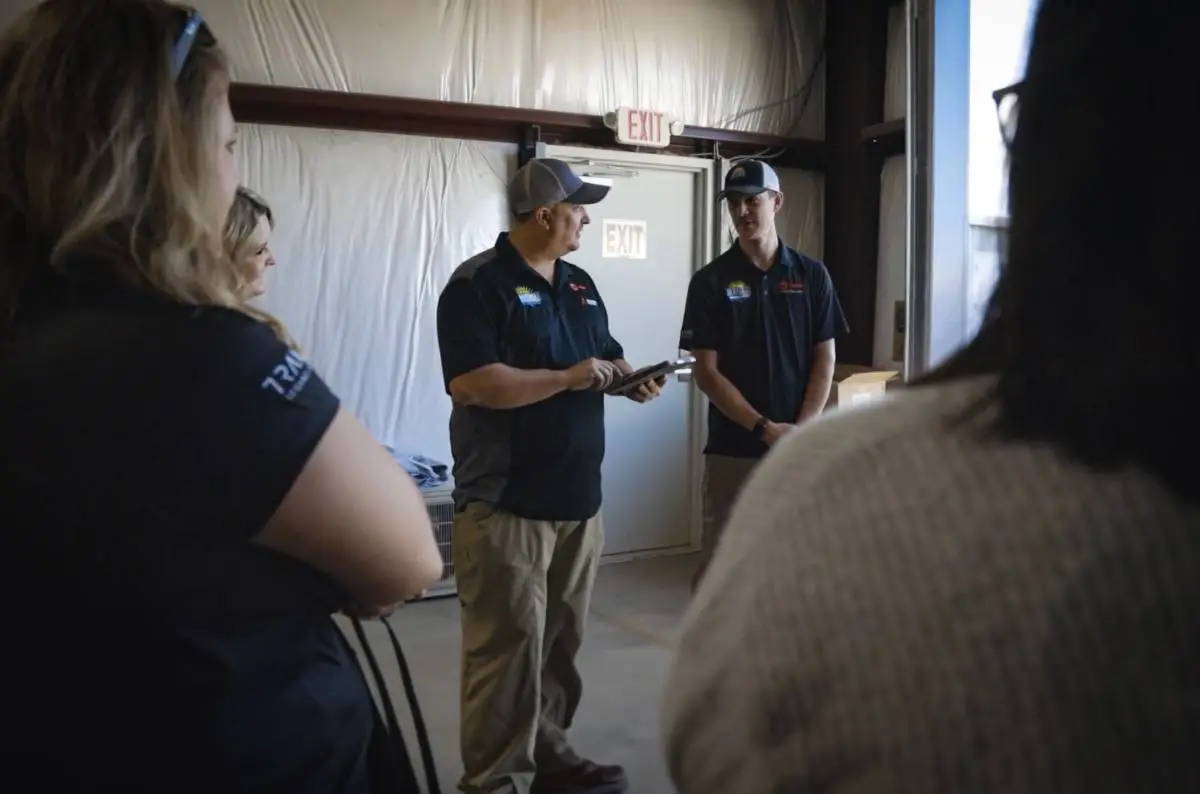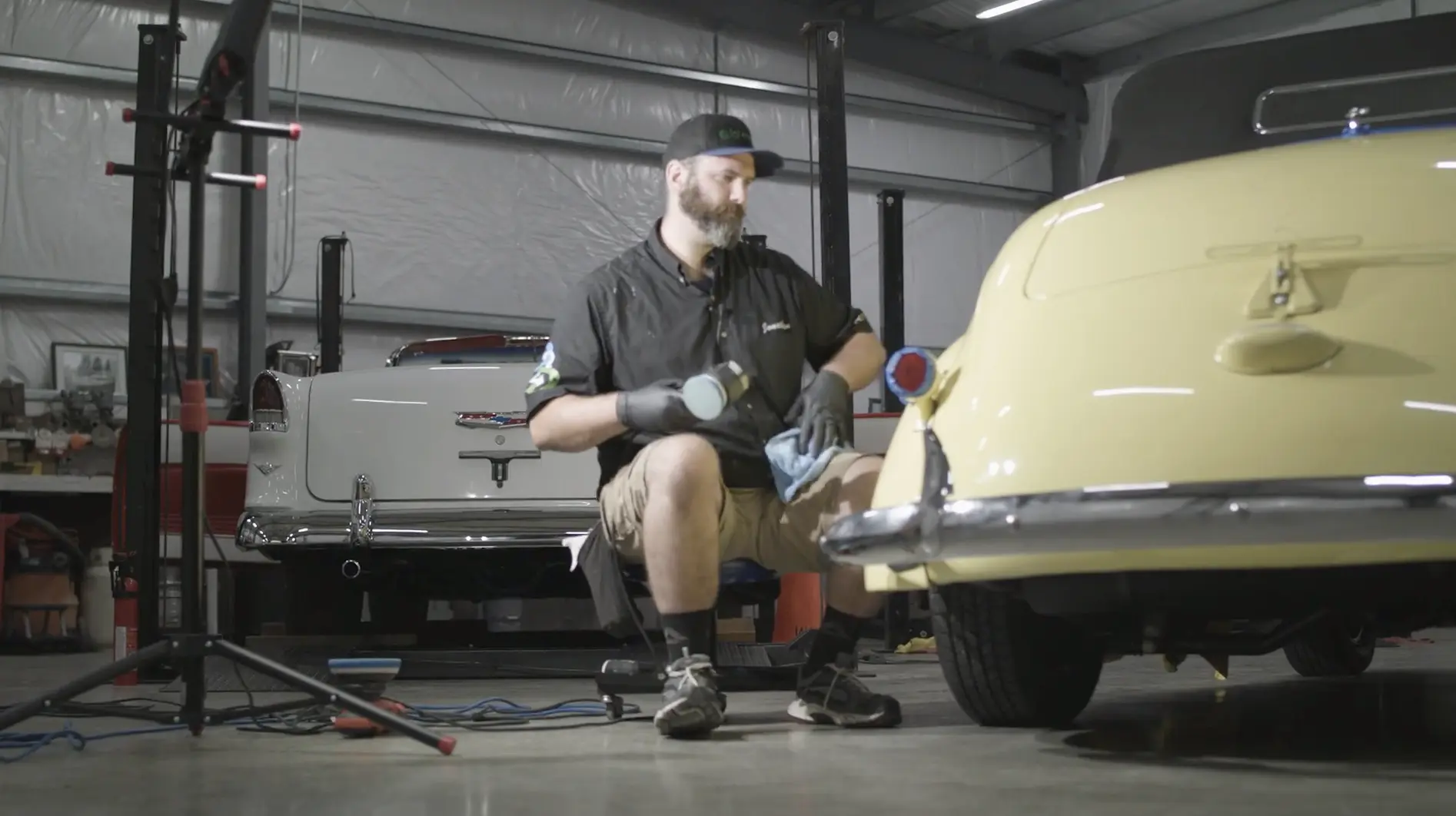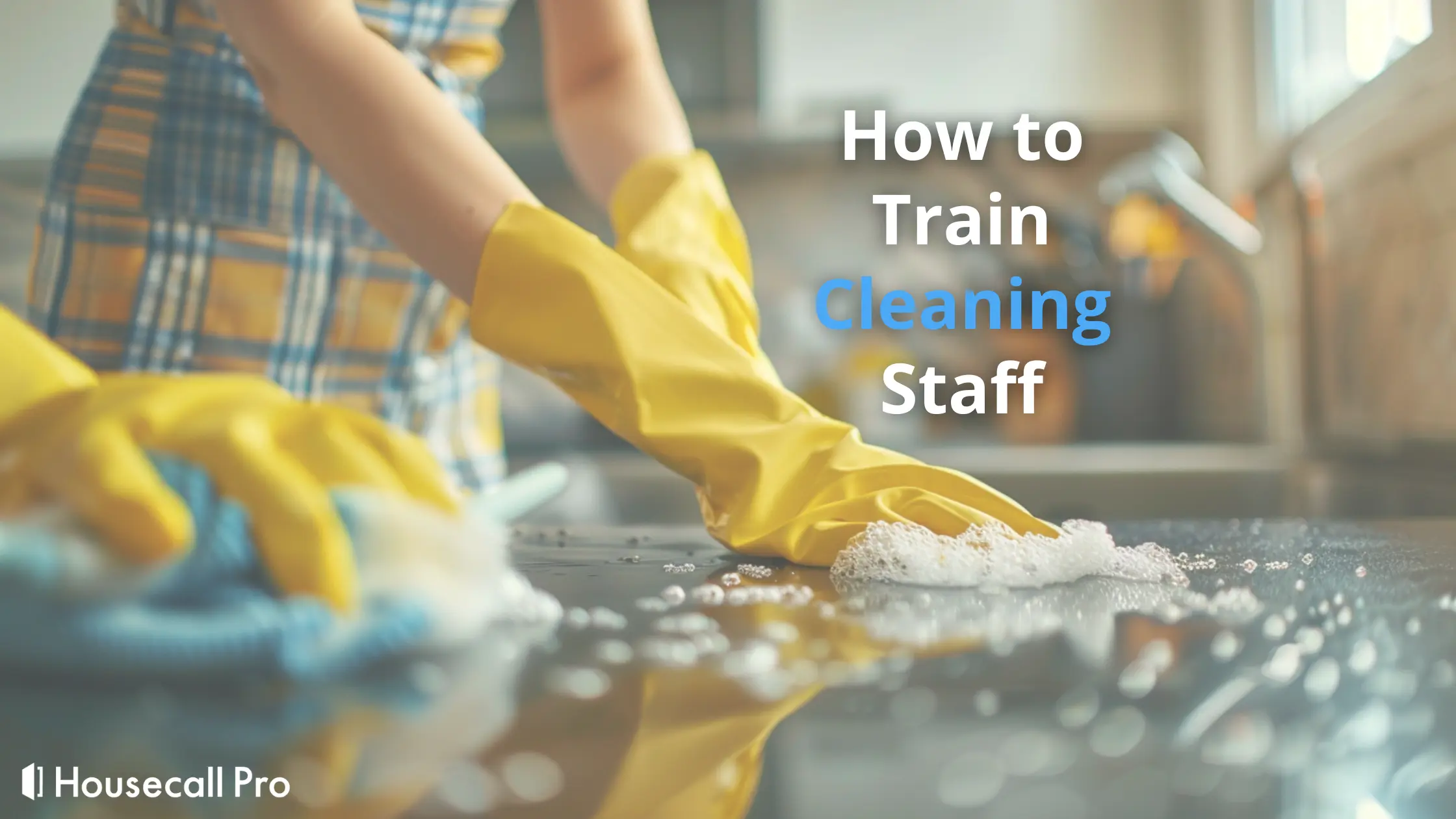
Your cleaning service business is only as successful as your cleaners in the field. Maid service businesses depend on 5-star ratings and positive word-of-mouth (including online reviews!) from clients. How do you make this happen? Consistent high-quality cleans each time.
Employee training is the foundation for consistent quality. Your goal as a maid service business owner is to develop robust training for cleaning staff.
Starting a cleaning business or building your business from a single owner-operator to a larger, multi-cleaner team is easy with the help of Housecall Pro. Our field service business platform has all the features you need to implement our top 12 tips for starting a cleaning business, saving you time and money.
Check out our recommended 12 steps to train your cleaning teams!
- 1. Establish Operating Procedures and Cleaning Standards
- 2. Create Custom Cleaning Checklists and Other Job Forms
- 3. Create an Employee Handbook
- 4. Set a Formal Training Schedule
- 5. Teach “Soft Skills” To Develop Relationships With Your Clients
- 6. Develop Workplace Safety Best Practices
- 7. Regularly Evaluate Performance and Clearly Provide Feedback
- 8. Use an App To Centralize Employee Training
- 9. Offer Additional Paid Training
- 10. Instruct Your Staff on Proper Protocol When Something Goes Wrong
- 11. Emphasize Your Commitment To Industry Standards
- 12. Don’t Neglect Your Own Training and Development
- Set Your Cleaning Staff Up For Success
1. Establish Operating Procedures and Cleaning Standards
Consistent high-quality cleans start with detailed standard operating procedures and cleaning standards. Before you start hiring new employees, take time to develop a library of Standard Operating Procedures (SOPs) for every cleaning service that you offer. Then, develop SOPs for each aspect of the cleaning service.
For example, you may offer:
- Residential Cleaning
- Commercial Cleaning
- Carpet Cleaning
- Window Cleaning
Then, within each of these services, create a library of SOPs detailing your expectations for:
- Cleaning a kitchen
- Mopping, sweeping, and vacuuming each type of floor
- Glass cleaning
Etc.
The more specific you can be, the better. For example:
“Use the blue microfiber cloths to wipe down all counters and surfaces in the bathroom and kitchen. Use marble cleaning spray for marble counters and the scrubbing bubbles for laminate counters,”
Is more detailed and easy to understand, plus prevents damage to the client’s house from using the wrong product than:
“Wipe down all surfaces in the kitchen and bathroom.”
Set standards for each part of the building, like carpet cleaning and stain extraction or polishing stainless steel and other metal surfaces. If your cleaning service business includes specialty services, like professional window cleaning options, then develop a separate SOP for cleaning windows, one for each: inside and outside.
How Do I Write SOPs For My Maid Service Business?
If you’re not sure how to start writing your SOPs, take a mental walk through your typical cleaning routine. Which room do you start in? What do you do first? What products do you want your team to use? Your SOPs can develop from there.
Your SOPs should also include specific sanitation and disinfection procedures. If you offer “green” cleaning services, you may need a separate set of SOPs for clients who opt for these services.
Or, you can set the end goal for each room or each stage of cleaning, then work backward from there. For example, if a clean bathroom includes:
- All porcelain cleaned and disinfected
- All glass polished
- All fixtures dusted
- Floor swept, mopped, and disinfected
- Shower stall cleaned and disinfected
Then, write your SOPs in steps for your maids to reach each goal
Another tip: If you have maids whose primary language isn’t English, consider having your SOPs translated (Google Translate can be your friend!) into the native language of your employees. This helps prevent errors through simple misunderstandings.
Having Standard Operating Procedures established makes it easier to grow your business or even start a franchise. Consistent high standards set your maid service business apart from your competition. Your SOP can be a living document—you can change or update it over time. With Housecall Pro, you can easily share updated SOPs with your team. If one of your cleaners in the field has a question, they can easily access your SOPs through the Housecall Pro app on their phone or tablet.
2. Create Custom Cleaning Checklists and Other Job Forms
Once you’ve created your SOPs, you can easily turn them into checklists for your team. Create custom cleaning checklists for all types of buildings or residences your service works in. For example, you could develop a separate checklist for basic and enhanced residential cleaning options and a third checklist for commercial cleaning jobs.
Checklists help your team members remember each step of the process and make it easier for your newer cleaners to remember what to do. If you have a client sign-off policy (in which the client reviews the services completed against the checklist), then these checklists make it much easier for your clients, too: all they have to do is follow the list and sign the sheet.
When you use Housecall Pro to manage your maid service business, you can create custom checklists in the program, which your team can access remotely on their phone or tablet. Your clients can also review the checklists online and virtually sign off that the job is complete and correct if they aren’t home when the cleaner leaves.
3. Create an Employee Handbook
An employee handbook is different from your Standard Operating Procedure cleaning manual. Employee handbooks cover the administrative side of your business and what is expected of employees. They also cover the job description for your cleaners (and different job descriptions if you have different roles in your company).
Employee handbooks also help you set standards for behavior and professionalism. By detailing what is expected of each employee, including grounds for written performance warnings and termination, you can save yourself a lot of legal headaches down the road.
A well-planned employee handbook should include:
- The history of your company, overview, and goals (like expanding, franchising, etc.)
- Brand values and mission statement
- List of names and contact information for supervisors, customer care managers, emergency services, like preferred plumbers, and anyone else your cleaners may need to contact about questions or concerns
- Work hours, including specifically stating what being “late is” (you may give a 5-minute grace period, for example)
- Payroll details, like when you get paid, direct deposit options, tip policy, and overtime options
- Scheduling information, such as how to request time off, call-in policy for illness, how to find their schedule, and policies for trading shifts to cleaning assignments with other maids (if you permit your maids to swap jobs or shifts)
- Benefits, bonuses, and other perks
You may also wish to include an SOP for professional behavior and how you expect your team to interact with your clients, plus what they should do if a client is upset (e.g., refer to the shift supervisor, call you, etc.).
4. Set a Formal Training Schedule
Did you know that one of the main reasons employees quit their jobs is a lack of training and clear expectations? A vital part of new maids’ hiring and onboarding process is giving them a detailed training schedule so they know what to expect each day. Each new cleaner receives the same training schedule, even if they have experience, so you can ensure that they’re completing the jobs according to your standards, not according to what they’ve done before.
Consider incorporating videos into the training program. Particularly for hands-on jobs like professional cleaning, demonstrations often get the point across much more effectively than written directions. You can store your videos and training materials online, and if you use Housecall Pro, your cleaners can access these at any time if they need a refresher.
Keep your training simple, breaking it up into sections so you don’t overwhelm your new hires. Once your new maids master the basics, you can move on to more advanced tasks.
A residential maid service training schedule could look something like this:
- Day 1: Dusting, removing cobwebs, cleaning baseboards and crown molding, and an overview of cleaning and disinfecting the bathroom and kitchen
- Day 2: Deep Cleaning and scrubbing the kitchen, including oven cleaning, cleaning the microwave hood, and other specialty tasks
- Day 3: Deep Cleaning and scrubbing the bathroom, including removing hair from drains and cleaning glass-enclosed showers
- Day 4: Review of Day 1 – Day 3, with the trainee doing the cleaning under the supervision of their trainer
- Day 5: Sweeping, mopping, vacuuming, dusting, and spot-cleaning
- Day 6 & 7: Trainee cleans the house under the supervision of the trainer, with feedback and coaching provided
Another consideration for new-hire training is who will be doing the training. The very best cleaner may not be the best at training someone how to clean step-by-step or be able to provide constructive feedback. Talk to your current team and see who is willing and capable of training your new hires (you may wish to give your trainers a little bonus or pay a higher hourly rate during training sessions).
5. Teach “Soft Skills” To Develop Relationships With Your Clients
Home service-based businesses rely on clients feeling comfortable with your team coming into their homes and, for cleaning businesses, on clients trusting your staff. Often, homeowners or business owners will schedule cleaning services when they’re away from home at work or after their office closes. Your cleaners will often be the only ones in the building, which means that they must develop a good, trustworthy rapport with your clients.
How do you develop good client relationships? By understanding the unique needs and preferences of each client. Housecall Pro has a Customer Relationship Management (CRM) module that allows you to build profiles for each client. Your maids can view customer preferences before they start the job. You can also assign specific cleaners to each client, according to client preferences.
When you bring a new cleaner on board, be sure to introduce them to the clients they’ll be working with. Coach your team to use respectful, professional language (no profanity, be polite, etc.). You can also leverage these growing client relationships into more positive reviews. Teach your cleaners how to properly ask for a positive review if a client is exceptionally pleased with the job they did.
Gathering client feedback can also help you gain insight into how your new hires are performing. Incorporating client feedback into your performance evaluations helps your team grow. Each client may have specific, actionable things your cleaners can improve on. Using a review management system to gather client feedback, review it, and organize it to address areas for improvement (for both your business and your team) helps you grow your business and improve word-of-mouth referrals.
6. Develop Workplace Safety Best Practices
Your maids will be using many kinds of chemicals in the course of their job. They could be working on slippery surfaces, constantly bending, kneeling, and twisting, and even working from heights. It’s important to train them in proper safety procedures, including lifting techniques and proper handling of cleaning products.
Each cleaning product you use should have a Material Safety Data Sheet (MSDS) issued by the U.S. Occupational Safety and Health Administration (OSHA). Even “green” and eco-friendly cleaning products should have safe handling instructions; if you offer an eco-friendly cleaning service option, then your team should understand what they may use and what not to use in the home.
In addition, make sure to cover:
- Use of PPE (gloves, eye protection, masks, etc.)
- First Aid, including what to do in an emergency. Consider providing each cleaner with a first aid kit as part of their equipment and supplies
- Safety procedures for specialized equipment. This is especially important for commercial cleaning service providers, as your teams may be using large electric floor buffers and other potentially dangerous equipment
- Risk assessment, including noting water, fire, or electrical hazards and how to address them safely
7. Regularly Evaluate Performance and Clearly Provide Feedback
Consistent 5-star cleans come from consistent performance evaluations and feedback. Check in with your new hires periodically during their first 90 days of employment.
There are several ways to ensure that your new hires are following your SOPs and exhibiting the level of professionalism and skill you require:
Choose one day per week to visit your new maids on the job. Let them know you’ll be there to evaluate their work, give feedback, and answer questions. You may also consider unannounced “pop-ins” while your maids are on the job, double-checking that they’re adhering to the SOPs when you and their trainer aren’t around.
Include client feedback in your assessments. Do you make it easy for your clients to leave reviews or alert you if something wasn’t completed? Incorporating the number of callbacks (times when a client has to call you because part of the job was incomplete) and feedback from client reviews in your employee evaluations can give you a more rounded view of their work.
Incorporate positive reinforcement by offering a bonus for each team member who doesn’t receive any callbacks in a month or small bonuses for cleaners who receive 5-star ratings.
Constructive correction and positive reinforcement often yield better results than criticism or negative reinforcement. View training and employee development as a joint effort with a common goal instead of an adversarial relationship between boss and employee.
8. Use an App To Centralize Employee Training
Digital training and onboarding can make your life so much easier. First, all your files are in one location, easily shareable through an app or via email. Second, your new maids can complete onboarding paperwork, review your training videos, and read the SOPs on their own, which can save you the hassle of organizing an in-person training day.
Digital files are accessible anytime, anywhere. Your maids can review cleaning SOPs at the push of a button or access the MSDS if they have a safety issue.
You may find it easier to update a digital file than to update and reprint paper copies of the employee handbook and SOPs. As your business grows, you may incorporate feedback from your clients into your SOP, or you may decide to offer additional services, like carpet cleaning or window washing, and need to develop SOPs for those jobs. Digital training materials make this much easier for busy business owners.
Having a full knowledge center available through an app can help your maids solve problems in the moment, including what to do in an emergency or who to call if a customer is dissatisfied. Your cleaners can quickly get answers to questions they have without playing text-tag with you.
Get In Touch: 858-842-5746
Let us earn your trust
On average, Pros increase monthly revenue generated through Housecall Pro by 50% after their first year.
See plan options and feature breakdown on our pricing page.
9. Offer Additional Paid Training
Your in-house training program may be great, but have you considered offering advanced professional development for your maids? The American House Cleaners Association and the ISSA Cleaning Management Institute offer continuing education courses for maids and housekeeping service owners. You might learn some new tricks, too, and be able to network with other business owners.
Certifications from reputable training institutions add another layer of professionalism and trust to your business. And, you may be able to increase your profit margins by offering cleaning services from maids with advanced certifications. Even if there is no difference in fees you charge after the cleaner goes through the classes, you may be more profitable because your cleaners are more efficient and can complete tasks more quickly, thereby adding more jobs to each cleaner’s day.
Don’t forget to post the training and certifications you and your team earned on your company website!
10. Instruct Your Staff on Proper Protocol When Something Goes Wrong
Even with the best training program and the highest safety standards, there’s always a chance something could go wrong on the job. Training your staff about what to do in different emergencies and consistently hosting ongoing emergency training and drills gives them the tools and information they need to quickly take action.
Whether the emergency involves accidental property damage, chemical contamination, or something outside of the maid’s control, like a dog bite, your team needs easy-to-access, detailed information about how to handle any situation.
Develop a set of emergency SOPs and make sure your maids know how to contact you in an emergency. Consider doing role-play exercises with your new maids so they’re comfortable with what to do and what to say in an emergency or if something goes wrong with a client.
In cases of property damage, train your maids to inform you first, then the client. Make sure that your maids know to direct the client to you to handle the situation, as you may need to contact your business insurance carrier.
If your employee gets hurt, make sure they know the right steps to take (e.g., seek medical attention, inform you, and visit your workers’ compensation-approved care facility for treatment).
11. Emphasize Your Commitment To Industry Standards
Depending on where you live, your maids may have to complete industry-specific certification or be required to demonstrate mastery of chemical safety standards. Even if these training and certification courses aren’t mandatory, your maids and the rest of your team could benefit from the training and knowledge, especially the OSHA-approved chemical safety courses.
U.S.-based cleaning businesses must meet the OSHA Hazard Communication Standard (HazCom), while Canadian-based businesses must meet the standards set by the Workplace Hazardous Materials Information System (WHMIS).
Both of these chemical safety systems inform your maids which labels and symbols correspond to specific hazards. Incorporating these systems into your in-house safety training and chemical handling SOPs can help your team understand the precautions they must take when using different cleaners.
OSHA Guidelines For Maid Service Safety
OSHA has additional safety and health training topics that help your team stay safer. You can incorporate these into your onboarding, Company Best Practices, or continuing education training:
- Recommended Practices for Safety and Health Programs: Step-by-step instruction for small and mid-sized businesses to implement a safety program
- Safety Pays Program: Information about the impact of occupational illness and workplace injuries on your business profitability
- Safety and Health Management Program Guidelines: Guidelines for workplace safety and health programs to reduce the risk of occupational injury or disease
- Elements of an Effective Safety and Health Program: Documents detailing proper handling of toxic materials
You may also find these resources useful as you develop your in-house safety training program and safety SOPs.
12. Don’t Neglect Your Own Training and Development
Growing your business often means growing yourself – professionally speaking. Housecall Pro partners with Conquer Coaching to offer business development courses specifically geared towards business owners of home-based services.
Get expert guidance from coaches who run successful home-based businesses so you can get tips specifically for your situation. Or, learn at your own pace with the practical curriculum we’ve developed for business owners like you.
With Conquer Coaching, you can increase your business profitability, improve your training program, and streamline your administrative and back-end processes. It also offers valuable networking opportunities with other home-service business owners and professionals in your area and across the country!
Best of all, Conquer Coaching offers FREE webinars on a variety of topics, from P&L management to hiring and staff development to sales and marketing. You can reserve a spot at one of our upcoming webinars here.
Set Your Cleaning Staff Up For Success
Are you ready to take your maid service business to the next level? Successful cleaning businesses start with professionally trained staff. Building and growing your business is easier with the help of Housecall Pro, a home-service business software program that handles everything from quotes and customer care to accounting, payroll and billing, review management, and much more!
Easily schedule cleaning jobs, manage customer satisfaction, and quickly invoice and collect payment, all from Housecall Pro’s maid service software platform. Your team can also use Housecall Pro to communicate with you, access training materials, and collect payment from clients from their phone or tablet.
Do you want to learn more? Sign up for a 14-day free trial today!
